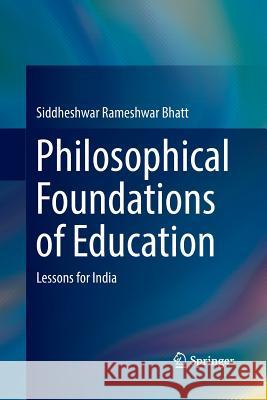Philosophical Foundations of Education: Lessons for India » książka
topmenu
Philosophical Foundations of Education: Lessons for India
ISBN-13: 9789811344176 / Angielski / Miękka / 2019 / 150 str.
Kategorie BISAC:
Wydawca:
Springer
Język:
Angielski
ISBN-13:
9789811344176
Rok wydania:
2019
Wydanie:
Softcover Repri
Ilość stron:
150
Waga:
0.24 kg
Wymiary:
23.39 x 15.6 x 0.91
Oprawa:
Miękka
Wolumenów:
01
Dodatkowe informacje:
Wydanie ilustrowane











